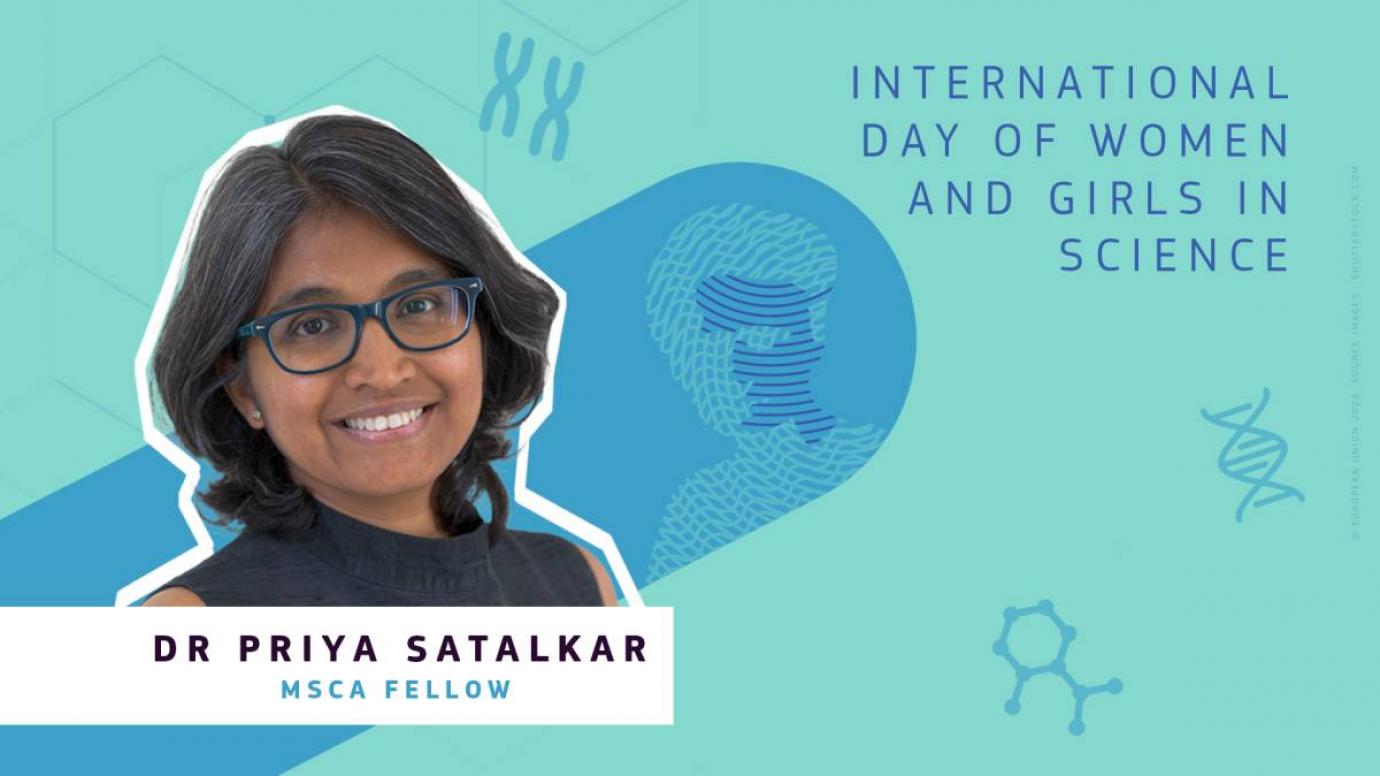Women need to believe that we are equal and valuable partners in every professional field
Dr. Priya Satalkar's parents instilled a sense of curiosity in her at an early age, when reading a biography of Marie Skłodowska-Curie helped to inspire her to become a researcher.

Women need to believe that we are equal and valuable partners in every professional field
Dr. Priya Satalkar, born in Mumbai, is trained in medicine, public health, medical anthropology and biomedical ethics. Following six years working in public health in India with international NGOs such as the World Health Organisation, she moved to Europe to conduct research in five European countries.
Her MSCA fellowship took place at Ghent University as part of a project called Faminart (Jan 2020-Dec 2021). She continues to explore the ethics of family creation and medically assisted reproduction with funding from the Flanders Research Foundation (FWO).
Glaciers and northern lights (aurora borealis) fascinate her.
At what point in life did you realise that you wanted to become a researcher? What sparked your interest in your specific area of research?
Growing up in India, my early education was heavily focussed on science, mathematics and languages. My parents did not have a college education but, they ensured that I learned to ask critical questions and to observe life around me with curiosity.
At 12, I read a book about two Indian female scientists (an oceanographer and a marine biologist) who spent a summer at India’s Antarctic research base. I even read Marie Skłodowska-Curie’s biography in my mother tongue. These women scientists became my role models to be a researcher.
I chose the interdisciplinary field of biomedical ethics because it finally gave me tools to systematically analyse several ethical dilemmas I faced as a junior doctor working in a publically funded tertiary hospital in urban India.
MSCA fellows are generally positively perceived by the others in academia - it is a researcher’s quality label.
As a female researcher, what are the particular challenges you have faced in your career?
My academic training and career is unfolding during a time of improving gender equality and parity across professions, not just in STEM. I have benefited from scholarships and mentorship programs aimed at increasing the number of women in leadership positions in academia and elsewhere.
However, I realise that I tend to doubt myself and my abilities, and an ‘imposter syndrome’ is my biggest and continuing career challenge. Noticing similar struggle in many of my female students, peers and colleagues despite their seniority or accomplishments, I know that I am not alone in this. Nevertheless, I try to ensure that my self-doubt does not stop me from taking on new challenges or seeking new opportunities.
How has the MSCA helped you advance your career?
MSCA fellows are generally positively perceived by the others in academia; it is a researcher’s quality label. In Europe, when I introduced myself as a MSCA fellow, others were keen to keep in touch for potential future collaboration. This has created new opportunities for me, and helped expand my professional networks in university and at a European and global level. My four-month secondment at the WHO Geneva gave me a unique vantage point to observe how scientific evidence can shape global health priorities and policies.
Data shows that in the EU women represent 48% of doctoral graduates - but only one third of researchers are women. Women remain under-represented in technical positions and at the higher levels of the academic ladder. As visionaries and innovators, how can these women unlock their full potential?
Women need to believe that we are equal and valuable partners in every professional field. We do not need to exhibit male traits such as fierce competition and aggression often associated with successful leadership to get our rightful place at the table. We can be our true selves caring and cooperating with others are not weaknesses. We need both men and women to champion for women in leadership roles and then we must take on those opportunities.
Every child you inspire, every colleague you encourage and support, every time you bounce back from failure, all make a meaningful difference in life.
If you met yourself as a youth, what would you say to encourage your younger self to become a researcher?
You are in a unique place to dare to dream about what you want to be and to work on fulfilling that dream. Do not define your success or self-worth based on whether you accomplished your dreams or goals or not. Keep an eye on what those journeys, efforts, challenges have taught you about yourself as a person. Change does not need to be huge.
Every child you inspire, every colleague you encourage and support, every time you bounce back from failure, all make a meaningful difference in life. Do not forget to take good care of yourself while caring for others.
Last updated:

